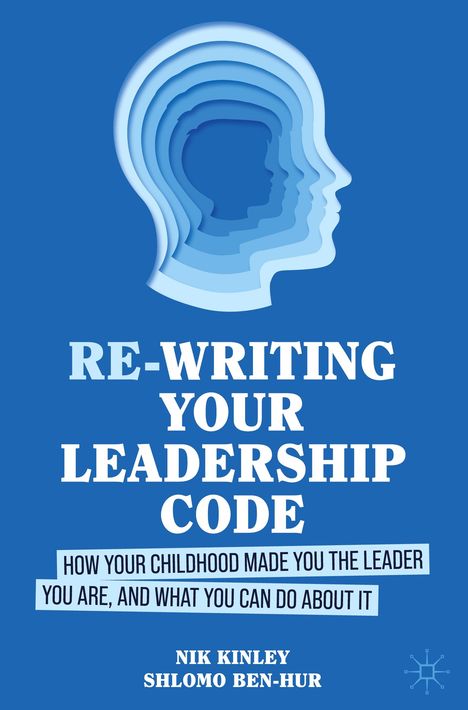Shlomo Ben-Hur: Re-writing your Leadership Code
Re-writing your Leadership Code
Buch
- How your Childhood Made You the Leader You Are, and What You Can Do About It
- Verlag:
- Springer Nature Switzerland, 03/2024
- Einband:
- Gebunden, HC runder Rücken kaschiert
- Sprache:
- Englisch
- ISBN-13:
- 9783031523946
- Artikelnummer:
- 11789457
- Umfang:
- 228 Seiten
- Nummer der Auflage:
- 2024
- Auflage:
- 2024
- Gewicht:
- 512 g
- Maße:
- 241 x 160 mm
- Stärke:
- 18 mm
- Artikelnummer:
- 11789457
- Erscheinungstermin:
- 5.3.2024
- Hinweis
-
Achtung: Artikel ist nicht in deutscher Sprache!
Klappentext
Where do your instincts come from and how can you improve them?Stretched by heavy workloads and facing ever more complex environments, leaders increasingly find themselves running on automatic and relying on their instincts. But depending on instincts is a bit like gambling, and as a result, stress levels, mistakes and failure rates are all on the up.
In this ground-breaking book, leadership experts Nik Kinley and Shlomo Ben-Hur reveal how our instincts are the products of childhood experience - lessons learnt that have become written into the structure of our brains. Like the source code at the centre of a computer, they underpin almost every aspect of our functioning as leaders. They affect how we interpret and experience things, how we react to events, the environments we choose, the impact we have on people, and even the responses we trigger in others.
Often these instincts and tendencies are hidden beneath professional poise. But under pressure, when we are deprived of time, they come to the fore. This is why leading under pressure can bring out the best and the worst in us. And it is why ultimately leadership is a test of the character of our instinctual code.
Based on decades of research, this book shows how we get to be the leaders we are today. It explains the tendencies and inclinations that past experiences can leave us with and the hidden ways in which they can affect who we are as leaders and how we behave. And crucially, it shows how we can make better use of our instincts and even improve them to become better leaders.


